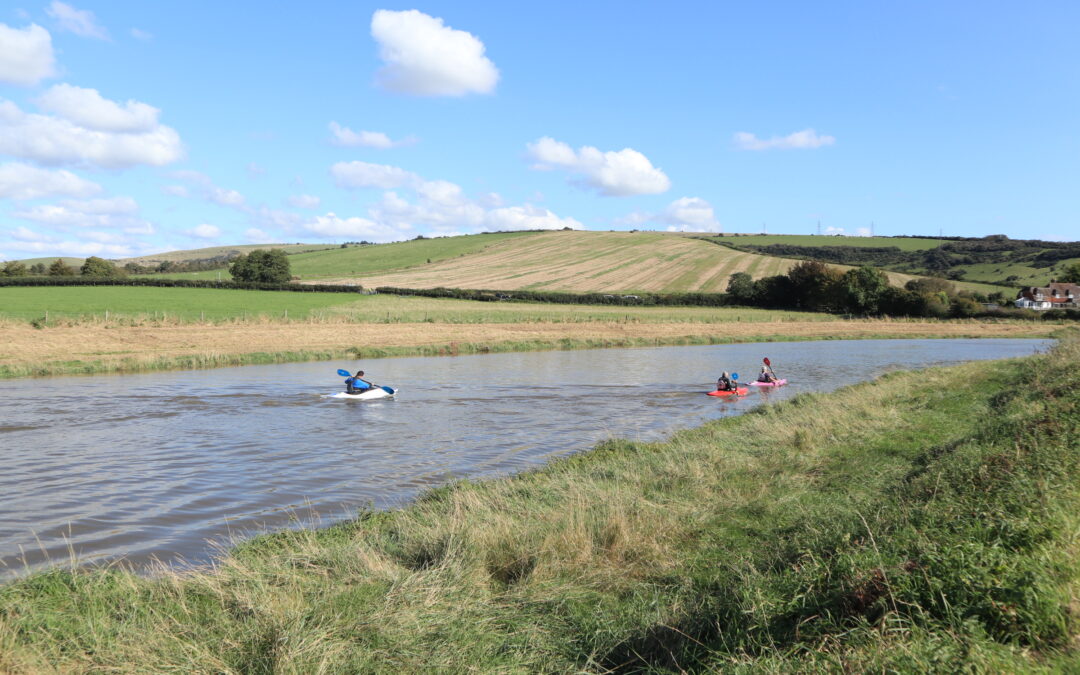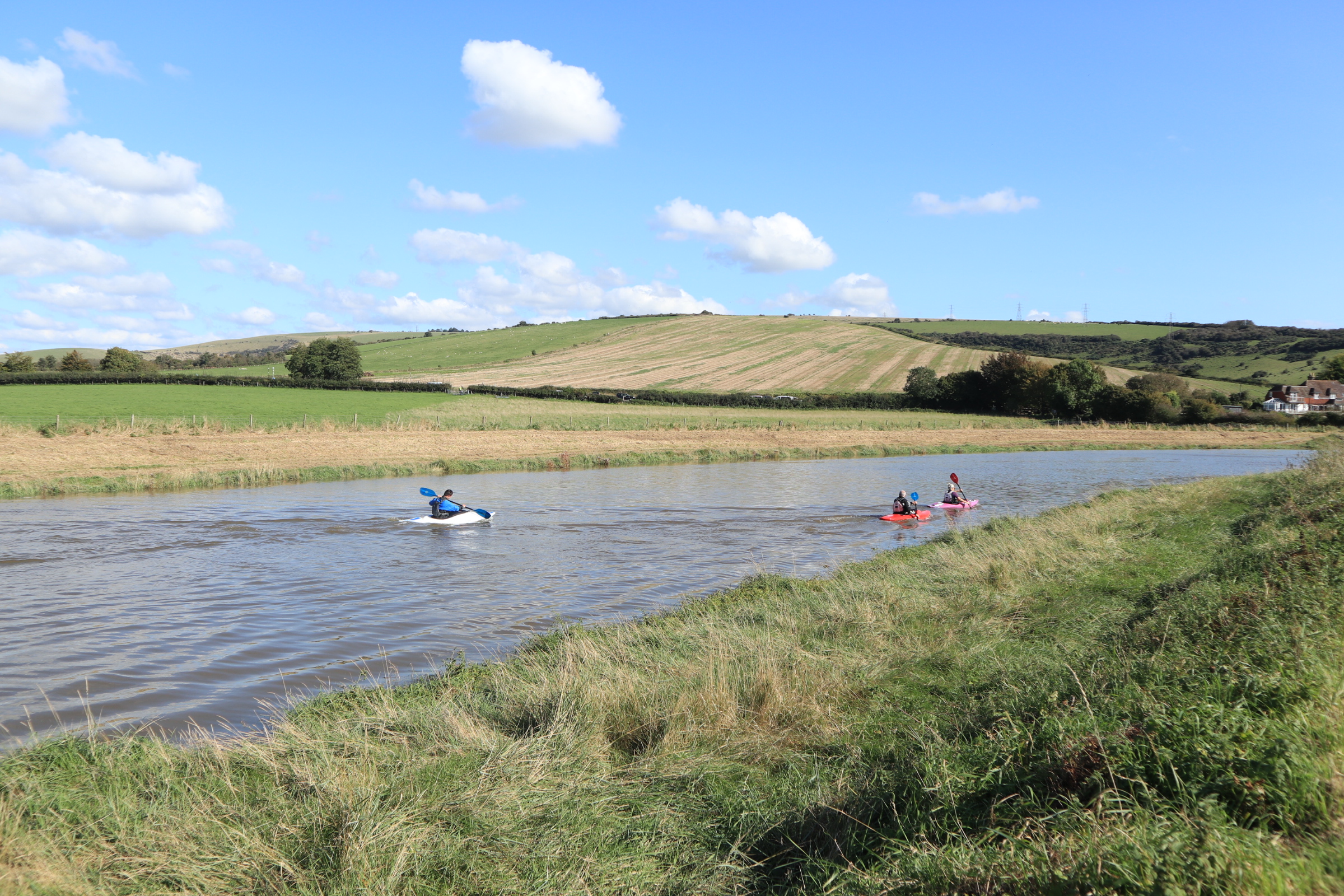News
Relief for our Rivers? New Report Spells Change for the Water Sector
A Sussex-Born Blueprint for Nationwide Recovery
Tides might be about to change for the UK water sector as the Independent Water Commission has released a landmark report directly challenging the status quo.
The Independent Water Commission (IWC) has outlined a clear call to the water sector: reform is needed. Their 464-page report outlines 88 recommendations addressed to the UK government and regulators with the goal to restore public confidence in the water sector and its’ regulation.
The report comes in the wake of growing concerns surrounding water resource use, pollution, and financial equity from investors and consumers – a.k.a. all of us!
“Resetting this sector and restoring pride in the future of our waterways matters to us all.”
Sir Jon Cunliffe
Who’s Watching the Water?
Environmental regulation is one of the key themes of the IWC report, indicated with the decisive statement that the current framework “has not sufficiently overseen the protection of the environment”. This has been clear to many for too long.
Whilst the quality of drinking water consistently meets regulatory standards, the quantity of available water supply is constrained in many regions, whereas wastewater continues to harm environmental water quality – posing a threat to ecology and recreational water-users alike.
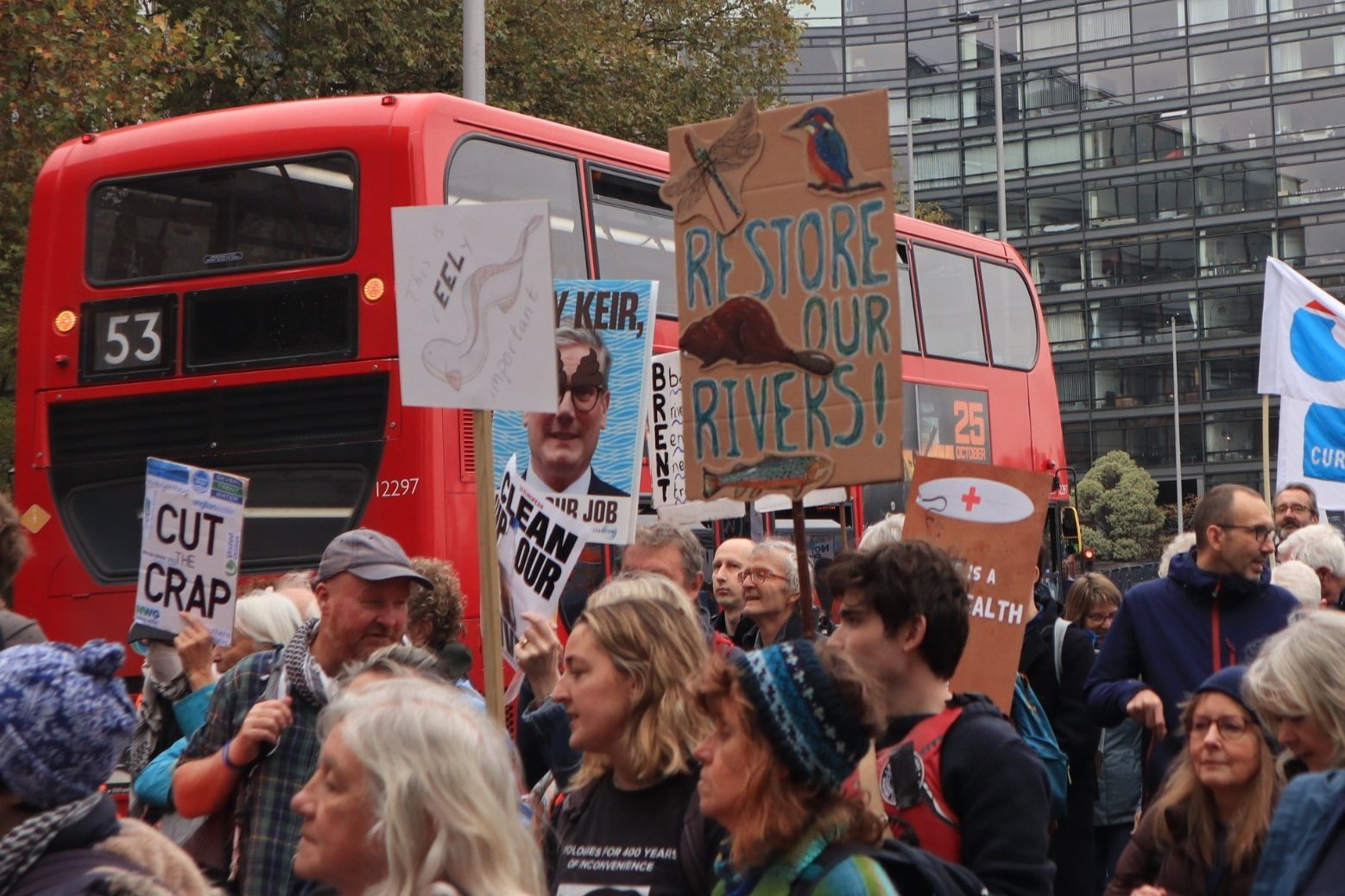
According to Surfers against Sewage, raw sewage was discharged in UK waterways 994,499 times in 2024 alone, whilst at least 75% of UK rivers pose a serious risk to human health.
The IWC report draws on a lack of public trust in the sector as a consequence of these failings. Last year, Adur River Recovery joined over 15 thousand people and 130 organisations to attend the Clean Water March in London, showcasing the urgency of public demand to protect the nations water quality.
[Left: Clean Water March 2024, Credit Jasmine Cacioppo]
More efficient and attentive monitoring, tighter regulations on sludge (i.e. sewage) use and disposal, stronger enforcement, and enhanced capacity are some of the recommendations to improve environmental regulation. In addition, the current 9 core planning frameworks are advised to cut down to two – water supply and wastewater systems.
Respecting the Balance: water supply and waste
Water Supply
In 2021, 15 water company areas including Southern Water and South East Water were declared as being ‘seriously water stressed’. A water stressed area can be viewed simply as a region where demand significantly exceeds supply.
Increased demand from a growing population, tighter restrictions to protect the environment, inefficient water use, and the growing issue of climate change are all affecting the availability of water supply.
Given the literal ‘on-tap’ access to water that many of us have in the UK, it is hard to connect with the idea that water is a scarce resource in many regions. In fact, often it is the view that water is in excess, a perspective that aligns well with the image of our ‘green and pleasant land’.
Unfortunately, reconciling with water scarcity may now be easier than ever as we emerge from the driest spring since 1893. The Environment Agency reported decreases in monthly mean river flows and soil moisture across all monitored sites in March. Groundwater levels also decreased at nearly 75% of monitoring sites.
The effects of dry soils were clear during our earthworm surveys across the River Adur catchment, where a concerningly low number of worms were found on landholdings.
During prolonged periods of dry weather, earthworms can travel deeper into the soil in search of moisture, and often undergo a hibernation-like process, where they will curl into a ball to preserve moisture.
This is more typical in the winter, yet many were observed in this state during the May survey.
[Right: Earthworm Survey, credit Tanya Forbes]
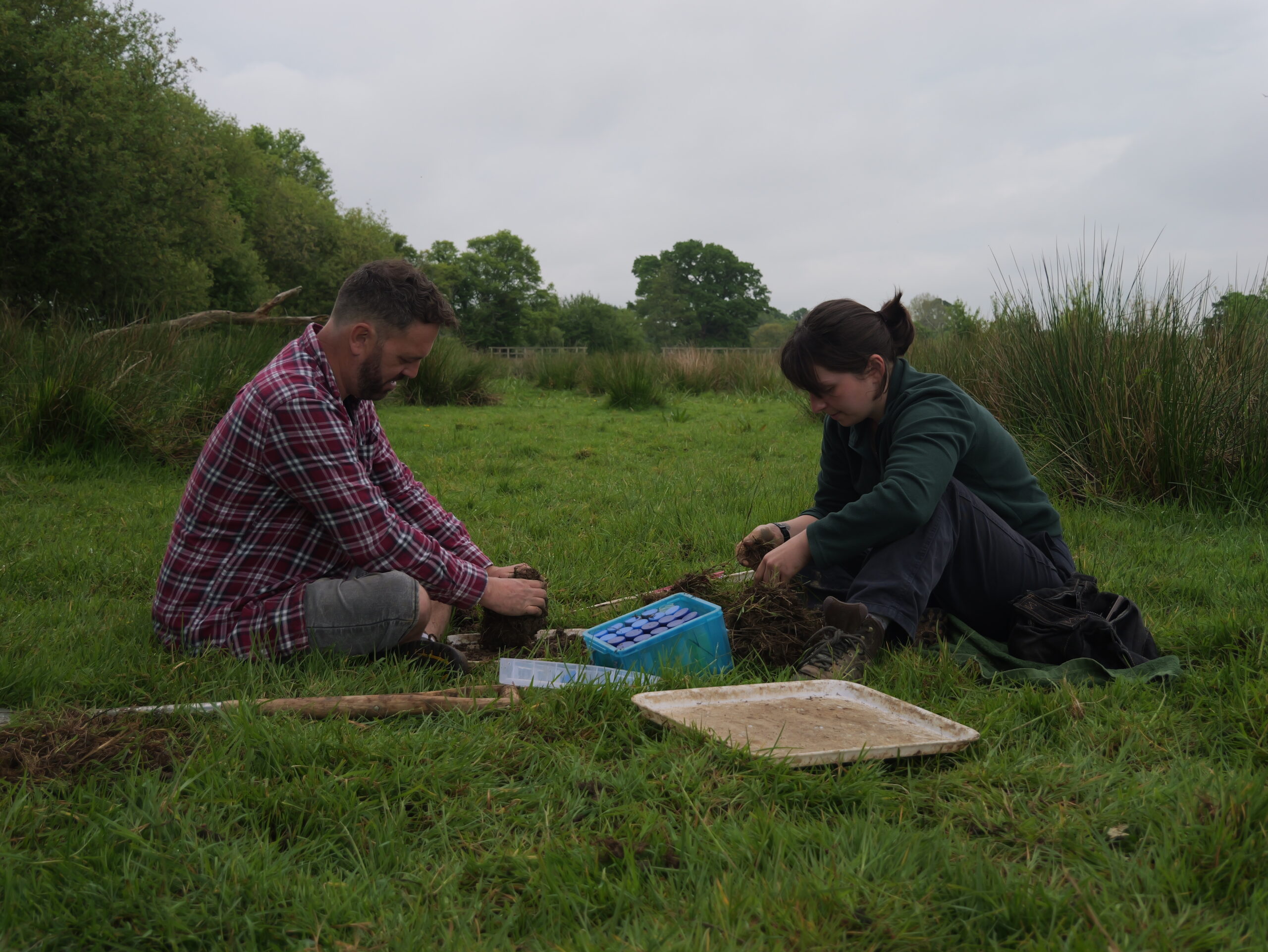
Wastewater Systems
Whilst drought threatens water supply, flooding poses a clear threat to regulation-safe wastewater disposal.
Both drought and flooding are expected to increase across most of England as a result of climate change. Increased rainfall in winter months may provide opportunities for water storage, however flooding and heavy rainfall commonly overwhelm wastewater treatment works, releasing sewage into our rivers and coastlines.
In the River Adur alone, coliform counts (bacteria found in human and animal waste) in January 2025 exceeded recommendations by up to 7x across all but one monitoring sites.
The IWC report highlights the urgency of reviewing urban sewage treatment regulations, as well as regulations managing the chemical and ecological quality.
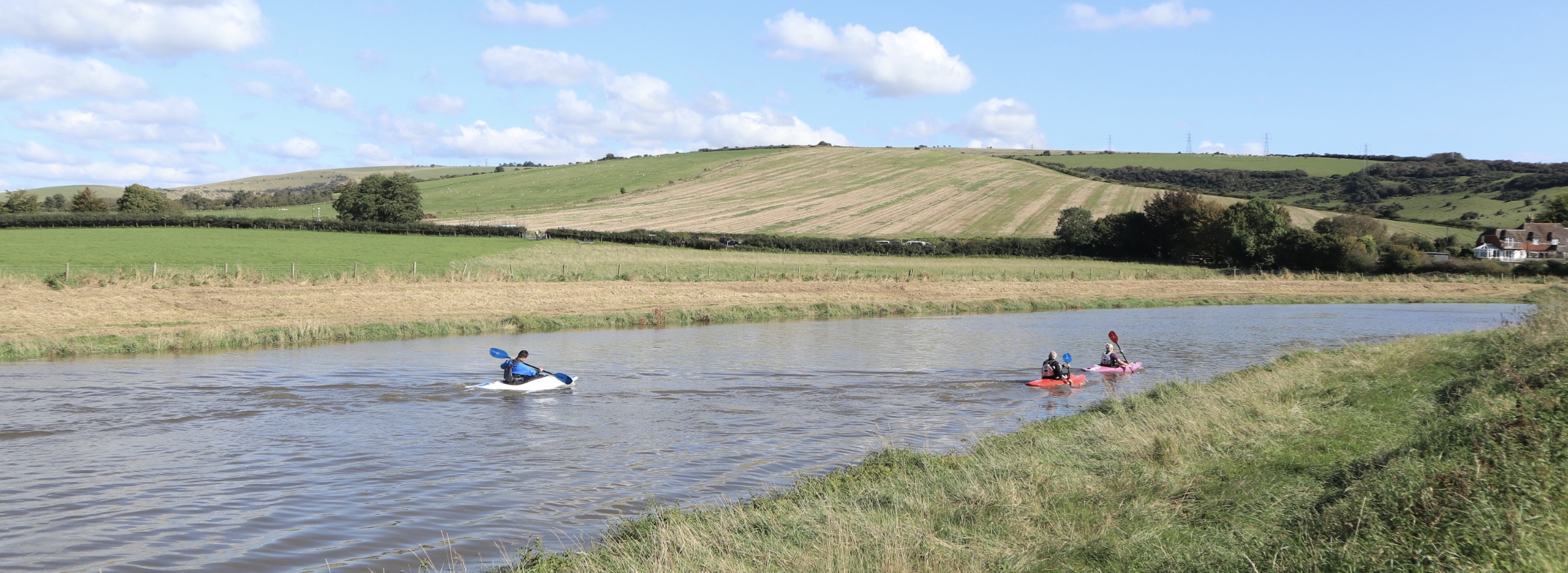
Image Above: Canoeing on the Adur, Credit Jasmine Cacioppo
Recovery, Reform, Resilience…
Significant change will be needed to achieve the recommendations outlined by the IWC. Protecting our water supply AND the water environment will take sustainable and robust reform from those within and outside of the water sector.
Fortunately, resilient and restored rivers will supercharge catchment response to improvements from the water sector, maximising benefits for people and the environment. Re-wiggling the Adur, slowing the flow of water, and restoring wetlands will help to combat drought and protect water resources. Functional wetlands and floodplains act as a sponge to store water and mitigate flooding in surrounding areas. Fostering wildlife-friendly farming and reviving the natural filtration function of floodplain soils will aim to reduce chemical pollution in our waterways.
All these interventions and more will bolster changes to improve water supply and environmental health across the Adur.
The IWC report will hopefully usher in much needed change within the water sector. Freshwater is undoubtedly one of our most sacred resources, so it is time to value it as such. Adur River Recovery is looking toward the next 20-30 years to restore a positive relationship with water across an entire catchment – with any luck the water sector will be joining us too!
Contact
Knepp Wildland Foundation
Knepp Castle Estate Office,
Horsham,
West Sussex,
RH13 8LJ

